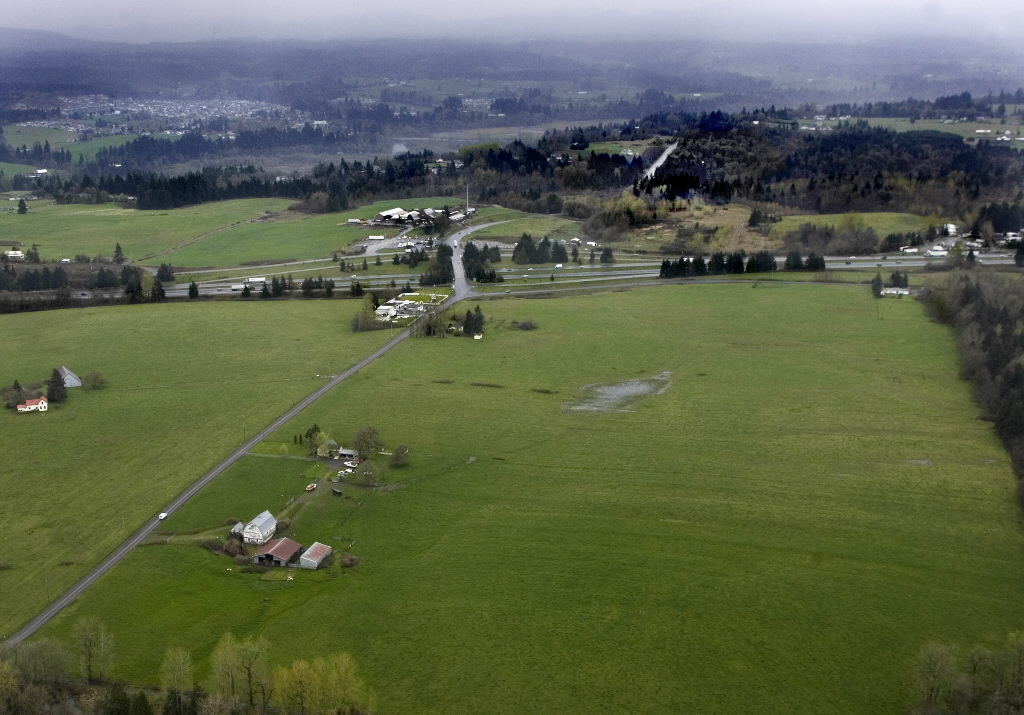In a surprising twist in the federal legal battle over the Cowlitz Indian Tribe’s proposal to build a casino near La Center, the federal government asked a judge to temporarily halt the proceedings in order to reconsider its initial determination that the tribe could establish a reservation.
The request was made after federal attorneys acknowledged they never received key documents that had been submitted by local opponents to the tribe’s proposal.
U.S. District Judge Richard W. Roberts denied the request, however, and ordered the federal government to decide by Oct. 5 whether it wants to proceed in defending itself in court or rescind the Bureau of Indian Affairs’ 2010 decision.
The case is being argued in U.S. District Court in Washington, D.C.
The tribe cannot build a casino unless it has an established reservation near La Center.
According to court documents, attorneys from the Justice Department asked for the delay after discovering that the Bureau of Indian Affairs either lost or never considered historical documents submitted by opponents of the tribe’s casino plans. The opponents’ documents challenged the tribe’s assertions that it had significant historical ties to the land near La Center.
The decision to put the land into trust needs to be reconsidered, wrote Justice Department attorney Gina L. Allery in a July 19 motion. “Depending on the decision reached by (the U.S. Department of the Interior, which includes the Bureau of Indian Affairs), it is possible that some or all of plaintiff’s claims in this lawsuit become moot.”
In an Aug. 29 decision, Judge Roberts said a delay was unnecessary.
The plaintiffs have asked Roberts for summary judgment, meaning he would decide the case based on documents that have been filed and not proceed to trial.
“Neither a remand nor a stay, however, is necessary to enable the federal government to review and reconsider the determination,” Roberts wrote. “Instead, the deadline for the defendants to file oppositions to the plaintiffs’ summary judgment motion will be extended. Should the federal defendants decide in the interim to rescind or otherwise alter their determination, they shall file promptly a notice of such action.”
The 2010 Bureau of Indian Affairs decision was appealed by Clark County, the city of Vancouver, nearby property owners Al Alexanderson and Greg and Susan Gilbert; Dragonslayer Inc. and Michels Development, operators of the four La Center cardrooms; and Citizens Against Reservation Shopping, a group that includes Scott Campbell, publisher of The Columbian.
Clark County Deputy Prosecutor Lawrence Watters said federal attorneys learned about the missing documents months ago when they received them from plaintiffs’ attorneys during the course of exchanging evidence. Yet federal attorneys waited until after the plaintiffs submitted their arguments for summary judgment before raising the issue with the judge, Watters said.
“It’s an odd scenario,” Watters said Wednesday.
The legal challenge has taken on special significance after the Obama administration chose to make the Cowlitz land trust case a test case of a 2009 ruling by the U.S. Supreme Court.
In that ruling, known as Carcieri, the high court said the government can only put land into trust for tribes that were under federal jurisdiction in 1934.
In saying the Cowlitz could establish a reservation, Assistant Secretary for Indian Affairs Larry Echo Hawk addressed Carcieri at some length in his December 2010 decision.
“For purposes of our decision here, I need not reach the question of the precise meaning of ‘recognized Indian tribe,’ as used in the (Indian Reorganization Act), nor need I ascertain whether the Cowlitz Tribe was recognized by the federal government in the formal sense in 1934, in order to determine whether land may be acquired in trust for the Cowlitz Tribe,” Echo Hawk wrote in his ruling.
The Cowlitz were federally recognized in 2000; that ruling was challenged and reaffirmed in 2002.
“The Cowlitz Tribe’s federal acknowledgment in 2002, therefore, satisfies the IRA’s requirement that the tribe be ‘recognized,'” Echo Hawk wrote.
Additional concerns
In addition to questioning the Cowlitz ties to the La Center parcel, plaintiffs also argue, and the defendants and the tribe deny, that the current plans have inadequate mitigation for stormwater, traffic, light and noise issues.
The defendants are the U.S. Department of the Interior, the Bureau of Indian Affairs and the National Indian Gaming Commission.
The plans for the Cowlitz site, which would be west of the Interstate 5 interchange in La Center, call for a two-story casino with 3,000 slot machines, 135 gaming tables, 20 poker tables and a 250-room hotel, plus an RV park, 10 restaurants and retail shops.
But that $510-million complex was proposed before the economy tanked.
The Connecticut-based Mohegan Tribal Gaming Authority partnered with Cowlitz tribal member and real estate developer David Barnett of Seattle on casino operation.
Stephanie Rice: 360-735-4508 or stephanie.rice@columbian.com.



